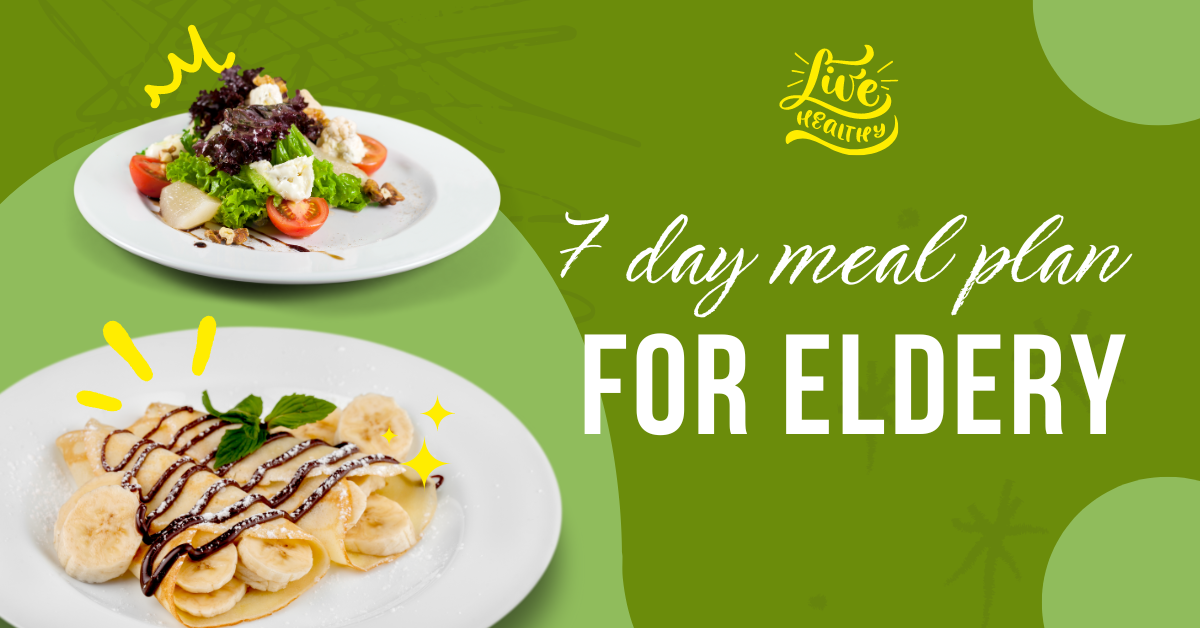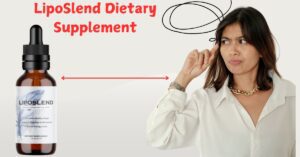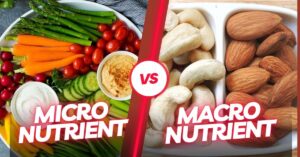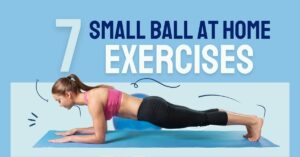With advancing age, a number of changes occur in our bodies that may influence the dietary things we require. In elderly people, proper nutrition is critical to ensuring wellness and preventing chronic diseases. This article will provide a detailed 7-day meal plan specifically designed for older adults’ diets to ensure that all critical nutrients are included.
Table of Contents
ToggleWhy Proper Nutrition is Essential:
As people get old, nutrition plays an important role in the aging process. A well-balanced diet can aid in weight control, enhance immune system function, maintain strong bones, and lower the risk of chronic diseases like heart disease and diabetes among others. Good nutrition is essential for senior citizens so as to be active and independent.
Nutritional Needs of the Elderly:
Metabolism becomes slower with ageing, and often, this leads to poor nutrient absorption by body tissues. Common nutritional deficiencies in older adults include vitamin D, calcium and B12 deficits, while proteins prevent the loss of muscles. This part explores how the elderly have different nutritional needs, which necessitate the incorporation of fruits, vegetables, whole grains lean protein sources; such as poultry, fish, nuts; peanut butter, eggs, soy products, legumes, or seeds; oils, fortified margarines, dressings, or organic spreads rather than unhealthy ones.
Creating a Balanced Meal Plan:
While making meal plans for aged people, it is necessary to center on dishes that give nutritional benefits and are easy to prepare and digest easily by their stomachs. How can macronutrients (carbohydrates, proteins and fats) be balanced in daily meals? What about micronutrients (vitamins and minerals)? This section will look into how these two types of elements, macro-nutrients (carbohydrates, proteins, fats) & micronutrients (vitamins, minerals), should be considered when planning each day’s meals.
7-Day Meal Plan For Elderly:
Breakfast Options:
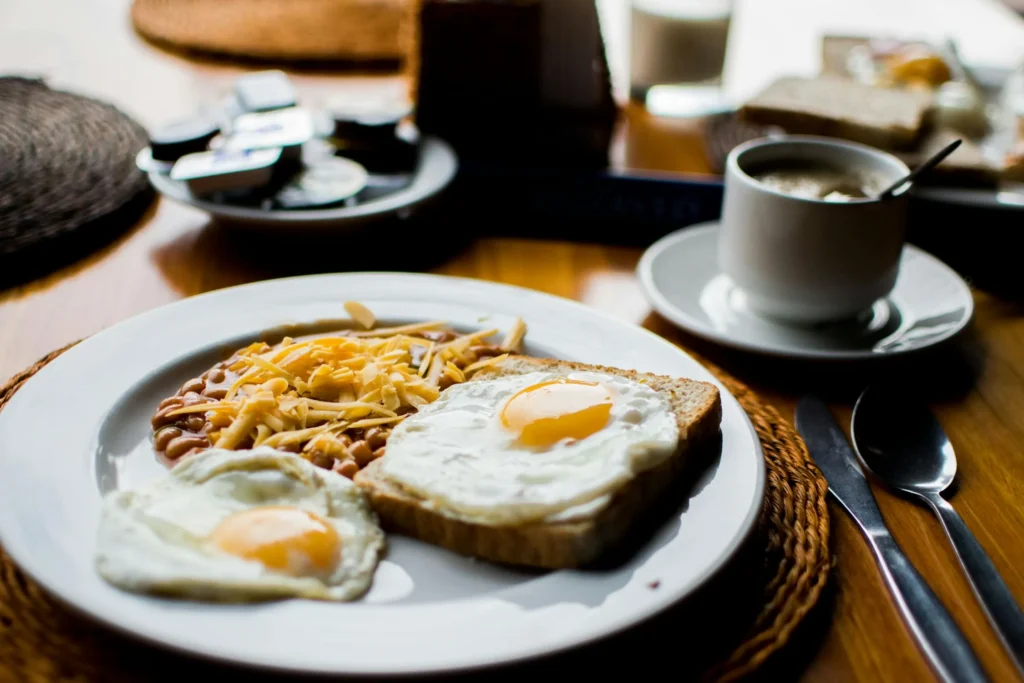
Below are seven breakfast recipes that are nutritious as well as simple for 7-day meal plan for elderly.
Day 1: Oatmeal garnished with fruits and eggs on the side.
Day 2: Avocado wholemeal toast and a poached egg.
Day 3: Spinach banana Greek yoghurt smoothie.
Day 4: Banana cereal with almond milk
Day 5: Peaches, cottage cheese and some nuts
Day 6: Yogurt with granola and berries
Day 7: Pancakes made of whole wheat flour served with fruit on the side.
Lunch Options:
Healthy lunch choices for every day of the week:
Day 1: Grilled chicken salad comprising mixed greens, cherry tomatoes and light vinaigrette dressing.
Day 2: Turkey avocado wraps served together with carrot sticks as an accompaniment.
Day 3: Lentil soup plus whole grain bread.
Day 4:Tuna salad on spinach leaves alongside quinoa
Day 5:Baked salmon with steamed broccoli brown rice on the side
Day 6:Cucumber, tomatoes, feta cheese in chickpea salad
Day7:Tofu vegetable stir fry plus brown rice as its accompaniment.
Dinner Options:
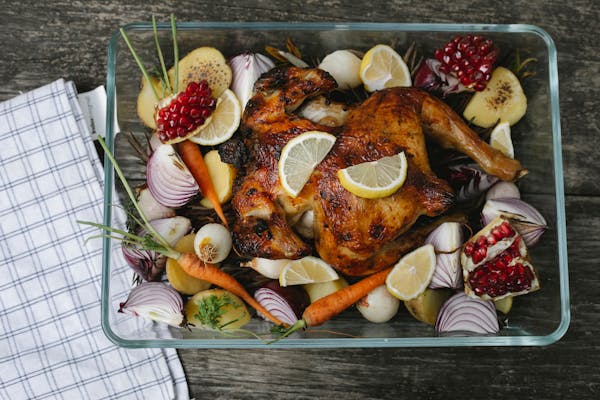

A diverse array of nutritious dinners:
Day 1: I baked chicken alongside green beans and sweet potatoes.
Day2:Pasta sprinkled with marinara sauce also sautéed spinach aside it.
Grilled fish accompanied by roasted vegetables and quinoa are suitable for Day Three, while beef stew, complete with peas, carrots, and potatoes, is a meal from Day Four. Mouthwatering veggie lasagna goes well together with garlic bread, which is mentioned on day five . Stuffed bell peppers are prepared using ground turkey alongside brown rice; this dish is for dinner during six days of the week as roasted pork loin mashed potatoes steamed asparagus will make up a good meal too (day seven).
Also Read: Get Fit Without Leaving Home The Surprising Benefits of Home Workouts
Snacks and Small Meals:
Here are some healthy snacks to maintain your energy levels throughout the day:
Nuts & seeds – A handful of almonds or sunflower seeds.
Fresh fruit: Apple slices with peanut butter or a bowl of mixed berries.
Cheese and crackers: Whole-grain crackers with slices of cheddar.
Yogurt: A small bowl of Greek yogurt with a drizzle of honey.
Veggies and dip: Sliced cucumber, carrots, and bell peppers with hummus.
Hydration Needs:
Staying hydrated is crucial for the elderly as lack of enough water can lead to serious health problems. You should encourage them to take water, herbal teas, and low-sugar beverages. This part will provide beverage suggestions as well as tips on ensuring adequate hydration.
Special Considerations:
Elderly persons may require adjustments due to specific medical conditions:
Diabetes: Emphasize on low G.I foods and manage carbohydrate intake.
Hypertension: Reduce sodium intake, include potassium rich food (e.g., bananas, spinach).
Osteoporosis: Ensure sufficient calcium and vitamin D contents in diets through fortified food products or supplements.
Supplements:
Although nutrients are best got from food sources, some supplements may be necessary for older adults. It covers among other things the vital senior vitamins such as vitamin D, calcium, or omega-3 fatty acids within this chapter.
Shopping List Essentials:
Making a shopping list that is well planned can make it easier when preparing meals. It contains essential items for the 7-day meal plan such as fresh vegetables & fruits; lean proteins; whole grains; healthy fats etc., which will be included in the grocery list section hereafter.
Meal Prep Tips:
Preparing meals ahead can help save time and guarantee nutritious options all the time. Learn to batch cook foods like grains using various cooking methods so they can last longer after preparation from our next topic on meal prep tips below.
Maintaining a Healthy Weight:
It is important to maintain healthy weight for general wellness purpose by making sure that portion control is practiced, regular meals are taken and mindful eating is adapted. Strategies to help achieve and maintain healthy weight through portion control, regular meals and mindful eating will be explored in this section.
Incorporating Physical Activity:
The elderly need physical activity to sustain their muscle mass levels and overall health. These exercises may include gentle movements that can be done indoors or outdoors such as swimming, walking or yoga—one of the things that this part specifies on.
Expert Insights:
Expert opinions from dietitians or geriatric experts regarding the significance of nutrition in elderly care facilities would also come along with some explanations about how a correctly balanced diet could influence ones overall well-being.
Future Outlook on Elderly Nutrition:
This field is always evolving for aged nutrition programs like personalized dietary plans, new approaches to supplementation and more meal delivery services designed specifically for seniors. This chapter will discuss some emerging trends in geriatric nutrition such as customized elder diets; improvements in supplement technology and availability of age-specific meal delivery systems for older adults.
Conclusion:
Finally, the importance of proper dieting among senior citizens is summarised along with the benefits outlined here from following the given eating plan so that they can remain healthy and independent while aging.
FAQ:
Q1: How can I ensure my elderly parent gets enough protein?
A: Put proteins into their meals such as lean meats, legumes, chicken or fish; additionally consider protein-rich snacks such as Greek yogurt or nuts.
Q2: Are there any foods elderly individuals should avoid?
A: Yes, they should limit their consumption of foods high in sodium content, sugary snacks like candies, etc., and processed foods that lack nutritional value.
Q3: How much water should an elderly person drink daily?
A: The person should have 6-8 glasses per day though individual circumstances vary from one another depending on factors such as age.

